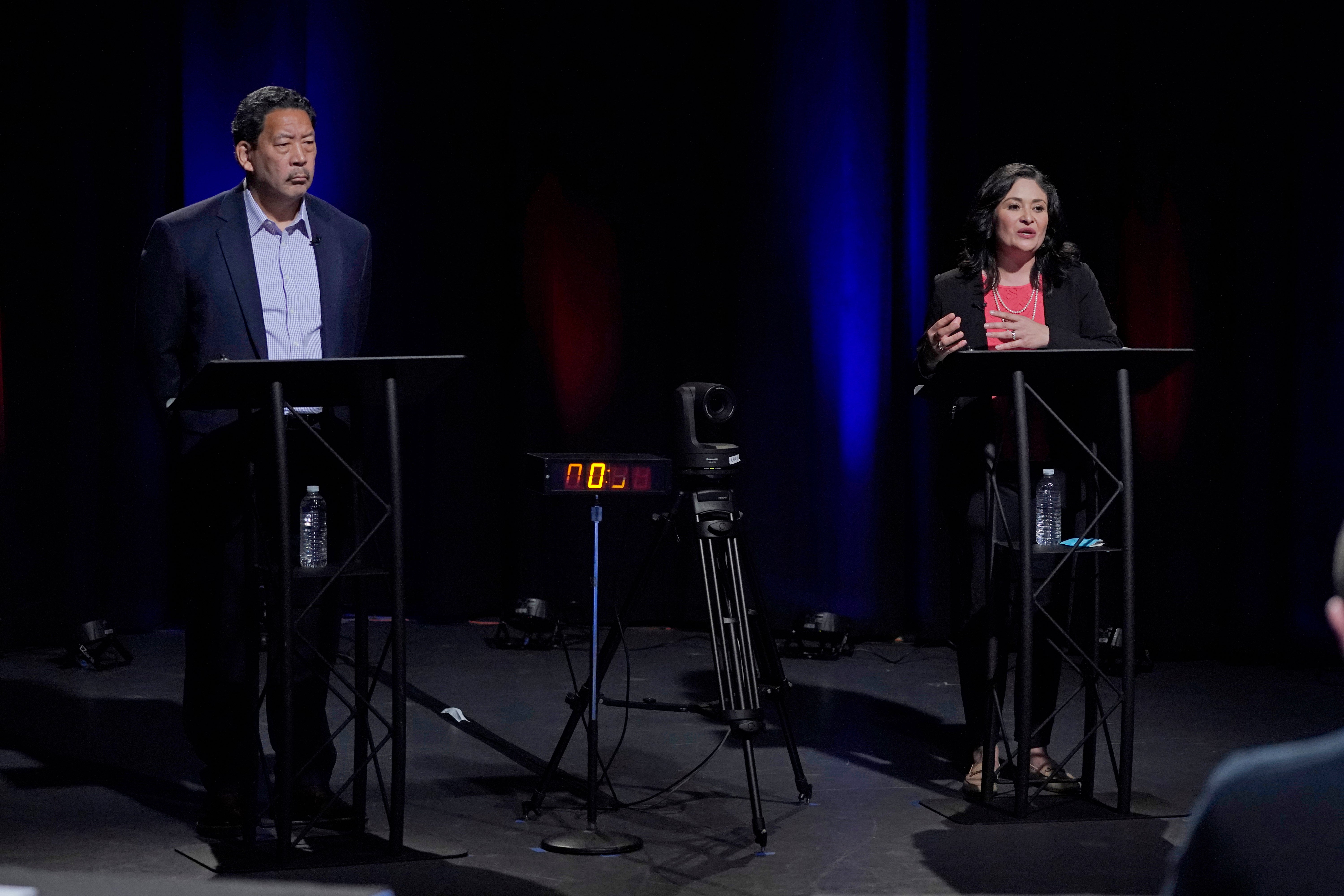Seattle elections pit leftist candidates against moderates
Activist progressives and more moderate candidates are competing for the chance to address Seattle’s problems of homelessness, crime, policing, and racial and economic injustice as voters cast their ballots by Tuesday in the city’s elections

Your support helps us to tell the story
From reproductive rights to climate change to Big Tech, The Independent is on the ground when the story is developing. Whether it's investigating the financials of Elon Musk's pro-Trump PAC or producing our latest documentary, 'The A Word', which shines a light on the American women fighting for reproductive rights, we know how important it is to parse out the facts from the messaging.
At such a critical moment in US history, we need reporters on the ground. Your donation allows us to keep sending journalists to speak to both sides of the story.
The Independent is trusted by Americans across the entire political spectrum. And unlike many other quality news outlets, we choose not to lock Americans out of our reporting and analysis with paywalls. We believe quality journalism should be available to everyone, paid for by those who can afford it.
Your support makes all the difference.Activist progressives and more moderate candidates are competing for the chance to address Seattle s problems of homelessness, crime, policing, and racial and economic injustice as voters cast their ballots by Tuesday in the city's elections.
The dynamic in heavily Democratic Seattle mirrors that in other liberal cities, with “back-to-basics” candidates who promise law and order facing off against progressives who insist that new approaches are needed to solve intractable problems such as homelessness. The positions are officially nonpartisan.
A consequential race for mayor tops the marquee, with City Council President M. Lorena González and former Council President Bruce Harrell running to replace Jenny Durkan, who declined to seek reelection.
González, the daughter of migrant farmworkers, would be the city's first Latina mayor. She's been endorsed by service-worker unions as well as environmental and urbanist groups.
Harrell, who grew up in redlined city neighborhood, would be Seattle's first Asian American and second Black mayor. He has strong backing from business and real estate executives.
But the normally low-key contest for city attorney has drawn national attention, with police and jail abolitionist Nicole Thomas-Kennedy running against Ann Davison, who pronounced herself a Republican in 2020.
González and other leftist candidates have said they want to tax large corporations to provide money for affordable housing. They would end forcible removals of homeless encampments when there isn't enough shelter or housing for the residents; end single-family zoning that prevents the construction of affordable housing; and invest in alternatives to policing, prosecution and incarceration.
Harrell has criticized his opponent for supporting the goal of cutting the Seattle Police Department s budget in half during the racial justice protests inspired by Floyd's death — a position she has since softened.
The department is down hundreds of officers due to retirements and resignations amid the talk of defunding, and Harrell has called for the hiring of more police, including some unarmed officers, as well as the appointment of a cabinet-level position to address rising gun violence in the city.
Harrell has courted voters frustrated with visible homelessness. He said he would keep parks clear of tent encampments while also increasing shelter space, and he has vaguely suggested that unhoused people who refuse services could face consequences.
A regional authority will begin overseeing much of Seattle's response to homelessness next year.
In the city attorney race, real estate and business executives have plowed money into opposing Thomas-Kennedy, who during and after the racial-justice protests of 2020 often tweeted vulgarly of her hatred for police.
Thomas-Kennedy is promising to stop prosecuting most misdemeanors. Citing her experience as a public defender, she describes such crimes as being largely crimes of poverty and says the city can't prosecute its way out of the problem.
Instead, she says, she would direct such cases to alternative justice programs and seek to establish a fund that would recompense businesses for shoplifting or similar losses not covered by insurance.
Critics say her election would make it even more difficult to hire and retain officers and would send a message to criminals that they can get away with stealing and other low-level crimes.
Davison has her own baggage in deep-blue Seattle: She announced in 2020 that she was leaving the Democratic Party and running for lieutenant governor as a Republican. She has stressed that she is “not a partisan” — and that she voted for Barack Obama, Hillary Clinton and Joe Biden for president, not Donald Trump.
In recent years, Davison has advocated for sweeping homeless encampments and moving residents into relief shelters set up in warehouses, and she has opposed safe-injection sites and a sex-education law. She says her opponent would jeopardize public safety.
Davison's critics have questioned whether she would enthusiastically defend left-leaning laws adopted by the council, including renter protections and progressive taxation, when her backers are challenging such measures in court.
The elections have attracted more than $10 million in political contributions, a record for the city.